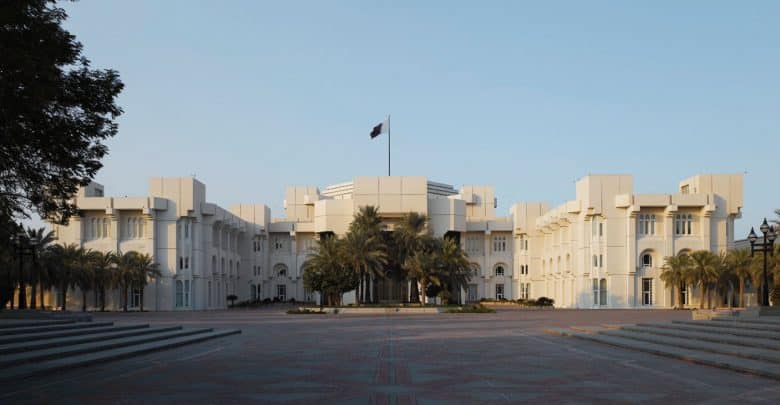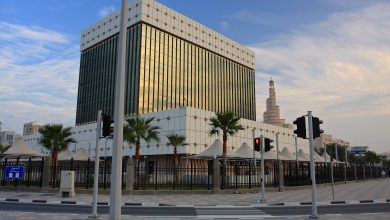
Amir issues law approving general budget for 2019
صاحب السمو يصدر قانونا باعتماد الموازنة العامة للدولة لسنة 2019
Doha: Amir H H Sheikh Tamim bin Hamad Al Thani issued yesterday Law No. 23 of (2018) approving the State’s general budget for the year 2019. The law is effective as of January 1, 2019 and shall be published in the official gazette.
The Ministry of Finance announced yesterday that the general budget of the State of Qatar for 2019 will achieve a surplus of QR4.3bn, according to budget estimates.
The surplus, which is the first budget surplus in three years, is a result of higher energy prices in international markets along with increasing non-oil revenues.
The 2019 budget assumes an average oil price of $55/barrel, compared with $45/barrel in the 2018 budget. Revenue is anticipated to reach QR211bn, up 20.5 percent compared with the budgeted revenue of QR175.1bn in 2018, the Ministry of Finance said in a statement issued yesterday evening.
Expenditure is set at QR206.7bn, up by 1.7 percent compared to the QR203.2bn budgeted in 2018. Accordingly, the budget is expected to achieve a surplus of QR4.3bn.
Based on directives from
H H the Amir, the 2019 budget is designed to achieve efficiency in current expenditure while maintaining the necessary allocations for the completion of major approved projects that contribute to the sustainable development targets of Qatar 2030 Vision.
These span economic, social, human and environmental development. The budget also focuses on providing the necessary funds for the development of new housing areas for nationals, enhancing food security projects, and the establishment of infrastructure and facilities in free zones, special economic zones, and industrial and logistics zones.
Allocations to Chapter I (Salaries and Wages) have increased by 9.4 percent to QR57.1bn, compared with QR52.2bn in 2018. This rise is the result of increasing hiring to secure required staff to operate several newly completed projects, especially in the education and health sectors. Hiring also increased in the defence, security and public safety sectors.
Expenditure allocated to Chapter IV (Major Projects) declined by 3.6 percent to QR89.6bn, compared with QR92.9bn in 2018. This decline is the result of the completion of some major infrastructure projects. Chapter
IV allocations are projected to continue declining gradually during the coming few years, as more projects are completed. Despite the drop in allocations, Chapter IV continued to represent the largest share of expenditure, at 43.3 percent. The focus continues to be on completing projects in leading sectors including healthcare, education and transportation, along with those related to the hosting of World Cup in 2022.
In 2019, new projects with a total cost of QR48bn are expected to be awarded out of a portfolio of committed projects worth QR421bn. These new projects will boost economic growth in the country, especially in non-oil sectors.
The allocation for the health sector is QR22.7bn, representing 11 percent of the total expenditure. Major projects to improve health care services include, expansions in Hamad Medical Corporation facilities, National Laboratories premises, completion of new four health centres (Al Wajbah, Muaither, Qatar University and Al Waab), commencing construction of five new health centres (South of Wakrah, Al Mashaf, Al Saad, Al Khor and Ein Khaled)
The education sector is allocated QR19.2bn in the budget, representing 9.3 percent of total expenditure. Major projects in the education sector include, facilities for the medicine, pharmacology, engineering and law schools at Qatar University, other Qatar University facilities (student housing, new lecture halls and Al Rawdah premises), expansion in the Community College, Ministry of Education headquarters, two new schools for Qatar Academy and the establishment of other new schools with a total cost of QR6.8bn over five years.
Infrastructure projects are allocated QR33bn, 16 percent of total expenditure. The sectors covered include road, water, electricity and sewerage networks, along with other public facilities.
The main infrastructure projects under construction include Al Bustan Highway, Al Rayyan/Dukhan Road, Al Khor Coastal Road, Al Furousiya Road, North Road, Wakrah Expressway, Wakrah Bypass, Lusail Expressway, expansions in the water and electricity networks and development of new housing areas for nationals.
The 2019 budget includes allocations for the development of new housing areas for nationals, including the provision of roads, water, electricity and sewerage networks.
The plan to provide new housing areas for nationals will cost QR12bn over five years. New land areas will be distributed to nationals gradually after the completion of required infrastructure, according to the approved timetable.
The Transportation and Communications sector is allocated QR16.4bn, 7.9 percent of total expenditure in 2019.
Most of the allocations will go to the Rail project, Doha Metro, while QR1.0bn was allocated for the expansion of Hamad International Airport as part of a wider plan worth QR10bn to enhance the capabilities of the airport to offer the best aviation and cargo services.
There are also funds assigned to Qatar Public Transportation Program, which is expected to cost QR3bn in 2019-2021.
The main transportation projects under construction include The Rail Doha Metro (allocations of QR12bn), Lusail Light Train, Qatar Public Transportation Program and Hamad International Airport expansion.
By Sachin Kumar I The Peninsula
أصدر حضرة صاحب السمو الشيخ تميم بن حمد آل ثاني أمير البلاد المفدى، اليوم القانون رقم 23 لسنة 2018 باعتماد الموازنة العامة للدولة للسنة المالية 2019 .
وقضى القانون بتنفيذه والعمل به من أول يناير 2019 وأن ينشر في الجريدة الرسمية.



